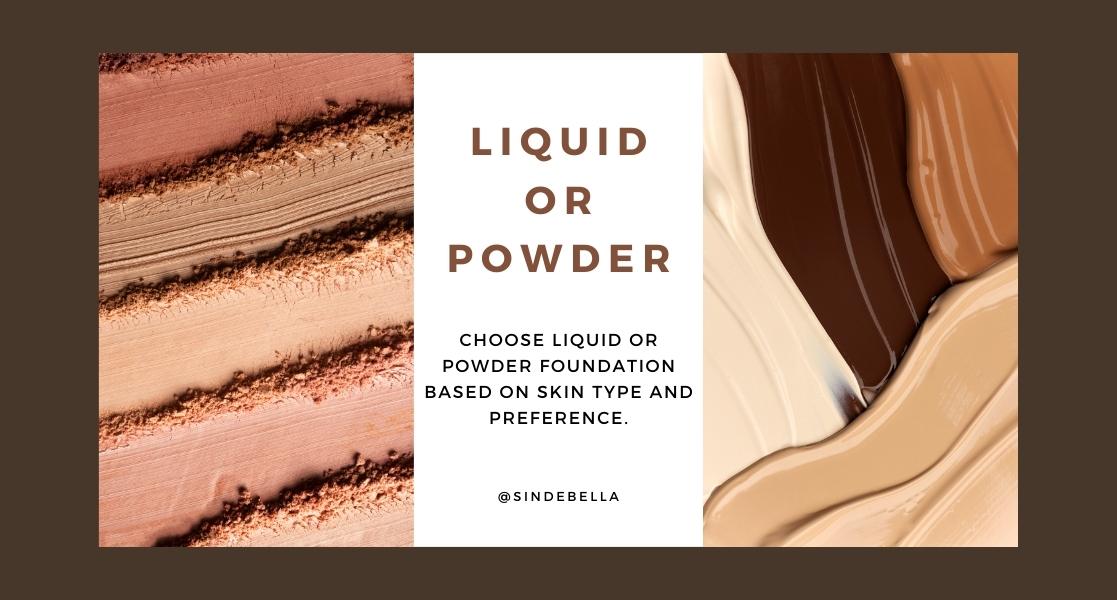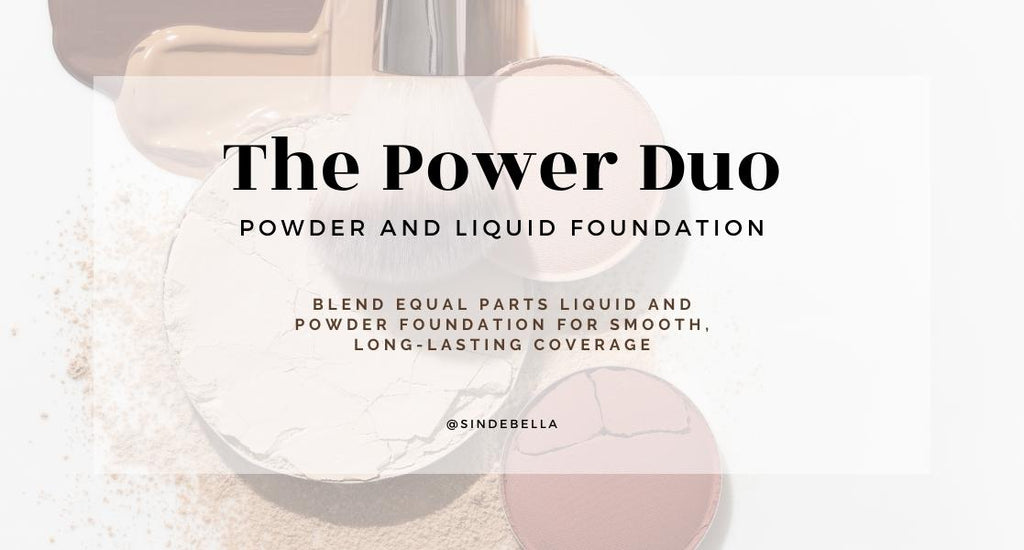
Liquid vs Powder Foundation: What's the Difference and Which is Right for You?
Introduction:
Selecting the right foundation can be a daunting task, especially with the multitude of options available in the market. Among the most popular choices are liquid and powder foundations. In this article, we will delve into the differences between these two formulations, analyze their suitability for different skin types, weigh their pros and cons, and ultimately help you determine which one is best suited for your needs.
Understanding Formulations:
Liquid Foundation:
Liquid foundation is typically composed of water-based or oil-based formulas, along with pigments, emollients, and various active ingredients. The liquid texture allows for easy application, blending seamlessly into the skin for a natural look. It offers a buildable coverage, ranging from sheer to full, making it suitable for all skin types.
Powder Foundation:
Powder foundation, on the other hand, is formulated with finely milled pigments and powder particles. It provides a matte finish and is generally recommended for oily or combination skin. Powder foundation is also known for its ability to absorb excess oil throughout the day, offering a long-lasting, shine-free complexion.
Suitability for Different Skin Types:
Liquid Foundation:
Liquid foundation tends to work well for dry or normal skin types due to its hydrating properties. It helps to moisturize the skin, providing a dewy and radiant finish. Additionally, liquid foundations often contain sunscreen agents, making them advantageous for those seeking added sun protection.
Powder Foundation:
Powder foundation is better suited for oily or combination skin as it helps control shine and oiliness. Its lightweight and breathable formula prevent clogging of pores, making it less prone to causing breakouts. However, individuals with dry skin may find that powder foundation accentuates dry patches and fine lines.
Pros and Cons:
Liquid Foundation:
Pros:
- Hydrates and adds moisture to the skin.
- Provides a natural finish and even coverage.
- Suitable for all skin types.
- Offers a wide range of shades and coverage options.
Cons:
- May feel heavier and slightly sticky on the skin.
- Requires touch-ups throughout the day, especially for longer wear.
Powder Foundation:
Pros:
- Controls shine and oiliness, providing a matte finish.
- Ideal for those with oily or combination skin.
- Lasts longer without the need for touch-ups.
- Can be easily layered for additional coverage.
Cons:
- May emphasize dry patches and fine lines on dry skin.
- Limited shade range compared to liquid foundations.
- Less effective at hiding blemishes or imperfections.
Choosing the Right Foundation for Different Occasions:
- Everyday Wear:
For casual or everyday wear, liquid foundation is often the preferred choice. Its hydrating properties, natural finish, and versatility make it suitable for a wide range of situations.
- Special Occasions:
For events or occasions where you want a flawless, long-lasting finish, powder foundation is a great option. Its matte finish and oil-absorbing properties ensure a shine-free look throughout the day or night.
Conclusion:
In the end, the choice between liquid and powder foundation depends on your individual preferences, skin type, and the occasion. Liquid foundation offers hydration, versatility, and a natural finish, while powder foundation controls shine and is ideal for oily or combination skin. Experimenting with different formulations and finding the perfect match for your complexion will help you achieve a flawless and confident look every time. Remember, the key is to choose a foundation that enhances your natural beauty and makes you feel comfortable in your own skin.
You can learn more about The Power of Combining PowderFoundation and Liquid Foundation: A Winning Combination




